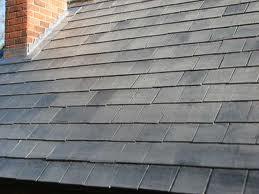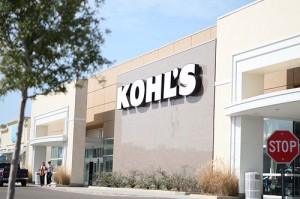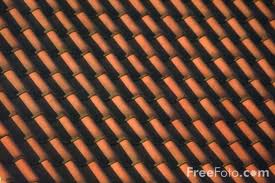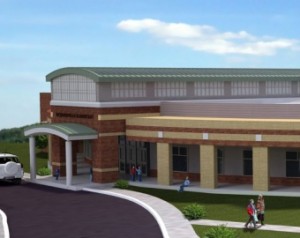Archive for September, 2010
91 Year Old Woman Victim of Roofing Scam
Earlier this week in Greensboro N.C., 2 men were arrested after tearing a hole in an elderly woman’s roof and attempting to scam her for roof repairs. The men initially offered to fix Francis Ramm’s broken chimney for $15, while they were up there they damaged the roof and then asked her for $1,200 to make the additional repairs.
Mrs. Ramm called her son, Carlton Ramm, and he called the police. The two men, Cedric Renwood Pierce, 57 and Randall Scott Weeks, 38, were arrested at the victim’s home.
After hearing of the scam, a Greensboro roofing company, Davis Roofing, made the repairs for free. Shane Bryant of Davis Roofing wanted to let the 91 year old woman know there were “still good folks left in the world.” Carlton Ramm said the roofing company ensured the repaired roof would be good for another 30 years.
The victim and her son were overwhelmed by the kindness of Davis Roofing a day after they were appalled by the greed of others. At the time, the scammers were working for BRM Construction and working on another home in the area.
Kohl’s Installs 100th Solar Panel System
Spokesman for Kohl’s department stores recently announced that the company has activated the solar panels at it’s 100th location in May’s Landing, New Jersey. Currently 6 other states (California, Wisconsin, Connecticut, New Jersey, Maryland, Oregon and Colorado) have solar panels at their stores and Kohl’s plans to move the solar program forward to Pennsylvania.
Based in Menomonee Falls, Wisconsin, Kohl’s has 1,089 stores in 49 states. Over the last 4 years the company estimates it has saved nearly $50 million in electricity bills. The company’s goals are to be carbon neutral by the end of 2010.
The Environmental Protection Agency has recognized Kohl’s commitment to renewable energy and has given the company green power awards for the last 3 years. Kohls ranks #1 in retail and second overall among Fortune 500 companies on EPA’s quarterly listing of top green power purchasers.
Kohl’s chose SunEdison for their extensive rooftop solar plans. SunEdison offered a number of options to approach a solution for installing and paying for the large roof mounted solar panel systems. Kohl’s selected the SunEdison Solar Power Services Agreement approach.
SunEdison pays for the panels and installation and then sells the electricity generated to Kohl’s on a 20 year contract with the price pegged at or below the cost of grid power. This plan allowed Kohl’s to achieve their goals of becoming carbon neutral while alleviating the financial burden of installing and maintaining the solar panels.
Self Repairing Solar Cells
MIT researchers have developed microscopic solar cells that mimic the way plant cells create energy from sunlight. The cells make use of proteins turning sunlight into electric charges. These solar cells just billionths of a meter across are longer lasting and more efficient than static photovoltaic cells.
Made up of a synthetic molecular mixture containing phospholipids that, when mixed with a solution, create a structural support that responds to light and can realign the system once electrons are “knocked loose” by the particles of light. The synthetic cells are able to self assemble and self repair themselves, just like plant cells do, when they are damaged by the destructive mixture of sunlight and oxygen.
The MIT researchers tested a prototype of the synthetic molecules, discovering the system to be 40% efficient–about double of the most advanced solar cells currently available. Photovoltaic cells are prone to reduced efficiency due to dust, debris, hail, and most often the sun itself, extended exposure to the sun gradually damages their internals, reducing their useful lifetime. In just 60 hours, efficiency can sometimes plummet as much as 90%.
This new research opens the possibilities for inexpensive, self repairing solar cells with an extended and possibly indefinite lifetime.
New Polymer Roofing Panels
A new roofing panel promise to reduce energy costs and increase a homes value. Echo Tech, a Los Angeles based company, claims their interlocking polymer panels are the most sustainable to date. The new interlocking polymer roofing panels are suppose to be unbreakable, heat-reflective, resistant to mold, mildew and algae. Are class A fire resistant and resist winds up to 130 mph. Making the roofing panels long lasting and cost effective.
The highly-advanced polymer material also, similar to how white roofs do, reflect heat off of homes, which reduces energy costs during the warmer months. Echo Tech says. each panel is made from polymers that create zero production waste. Making them a good option for environmentally minded consumers.
Offering both style and sustainability, NuSlate panels are designed to look like a variety of other roofing materials, such as cedar, wood or slate, although stronger and more durable. Echo Tech says this may be the last roofing material a homeowner would need to buy since the panels are so resilient.
First Net Zero School in Nation
Richardsville elementary school in Bowling Green, Kentucky, will soon produce more energy than it consumes. The 77,000 square foot, $12.6 million building will be the first school of its kind. Net zero status for the school means zero net energy consumption and zero carbon emissions annually.
Sunny days will completely power the school. If it’s raining or cloudy outside, the school can get its power for the electrical grid system.
Partially funded through a state grant, the $2.4 million dollar solar panel project will help the school use 75 % less energy than other schools.
The school roof will support approximately 2000 solar panels and another 700 panels will be on the school parking structure.The schools unused solar energy will be sold back to the Tennessee Valley Authority and used to power about 50 neighboring homes.
One hallway features an exposed solar panel where teachers and students can see how much energy is being produced and serve as a useful teaching tool.
Other high performance features of the school are concrete insulated walls, compact 2 story design, energy star kitchen, high windows to bring in outside light and bamboo flooring in the gym.
Katrina States Not Enforcing Roof Codes
New roof building codes are not being enforced in a number of cities in Alabama and Mississippi. The construction methods are creating vulnerabilities similar to 2005’s hurricane Katrina.
Confirming well built roofs has proven to be a major challenge in more than 20 gulf coast cities and counties. Many areas do not inspect roofs that are being replaced. The construction of a roof determines its strength, and routine and consistent inspections could ensure higher standards are being met.
The frame is supposed to be anchored to the rafters. Gables are to be braced so they won’t blow down. Many builders use staples instead of nails to attach decking to rafters, although staples have been found to come out at lower wind speeds.
After the decking comes the liner, many roofers use felt due to low cost, but the new synthetic liners are stronger. And last but not least is the shingles; roofers are supposed to use 6 nails per shingle, but this is hard to observe as the inspectors would have to stand around and watch the roofers all day.
Roof damage still occurs even when winds are not considered high. According to the wind gust predictions of the American Society of Civil Engineers, those areas closest to the gulf should build their roofs to withstand winds between 140 to 150 mpg.












